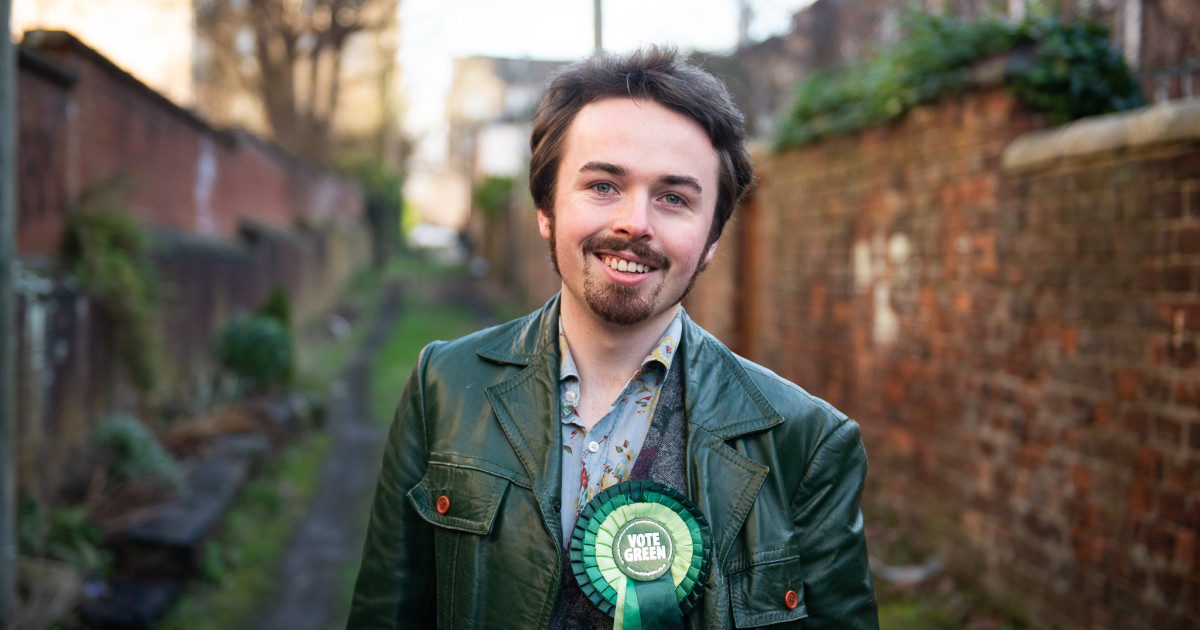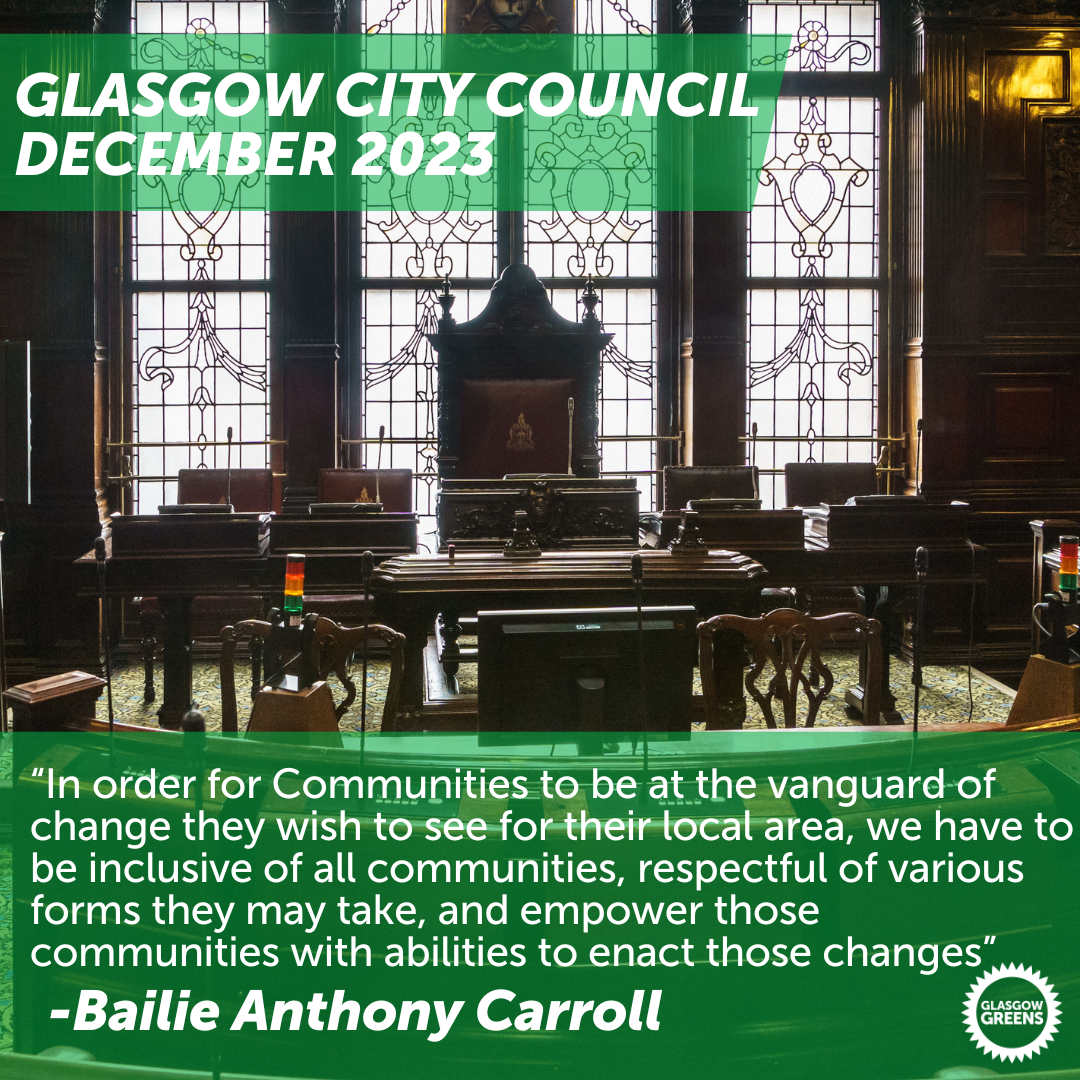Green Councillor brings motion on real Local Democracy
At todays full council meeting at Glasgow City Chambers, Green Councillors are bringing a motion on the Democracy Matters consultation with the Scottish Government, & recommendations to improve Community Councils & wider community engagement.

At todays full council meeting at Glasgow City Chambers, Green Councillor Anthony Carroll is bringing forward a motion on the Democracy Matters consultation with the Scottish Government, & recommendations to improve Community Councils & wider community engagement. The Glasgow Green Party is dedicated to the realisation of radical local democracy and our representatives are working hard across all levels to make this a reality.
Speaking to the motion in the chamber today Anthony will say:
"In order for Communities to be at the vanguard of change they wish to see for their local area, we have to be inclusive of all communities, respectful of various forms they may take, and empower those communities with abilities to enact those changes folk wish to see."
Read the full text of Cllr. Carrolls motion below:
"Council notes that 2023 is the 50th anniversary of the legislation which introduced community councils in Scotland. Council thanks all community councillors past and present who have given their time in service of their local communities and worked hard to strengthen democratic participation over the past 50 years which we have seen them operate in their current form.
Council notes the launch of the Democracy Matters consultation by the Scottish Government which seeks to inform proposals for a reinvigoration of local democracy through a forthcoming Local Governance Bill.
Council notes that Scotland has the largest first tier of local governance anywhere in Europe and that while we have community councils established by statute, they are entirely voluntary and have limited powers.
Council notes the findings of the first phase of Democracy Matters consultative work, which highlighted a broad range of barriers to community engagement and empowerment, and that there has to be a multi-faceted approach to engaging communities as one size does not fit all. Council acknowledges the role other forms of community groups such as youth forums, local strategy groups, and area partnerships have in providing spaces for communities to organise and enact local change.
Council agrees to engage with communities during this second phase of Democracy Matters consultation and to advocate in earnest for radical action to grow grassroots democracy and to transfer powers and resources to new or strengthened forms of grassroots local governance.
Council also agrees to strengthen existing frameworks for community engagement and empowerment, such as community councils, including by:
• Aiming to ensure there are no dormant community councils, including exploring temporary arrangements with neighbouring active community councils if required.
• Exploring with Community Councils the challenges they currently face in retention, and supporting research via the Democracy Matters consultation on them, such as remuneration for Community Councillors.
• Prioritising redevelopment of Glasgow City Council's online services within Glasgow's new Digital Strategy to be more user friendly and varied in approach to best support accessibility in engagement on areas such as community consultation and planning.
• Undertaking a review with community councils of additional powers which could be exercised at grassroots level, potentially including powers over community asset management, elements of traffic regulation and allocation of street cleansing and other environment services.
• Improve support to community councils including updating training, and help to ensure community council membership is inclusive of the whole community including those with protected characteristics.
• Ensure that the reform of area partnerships to citizen panels empowers communities both with and without community councils, but is done in conjunction with them so as not to conflict with their democratic, statutory role. "
